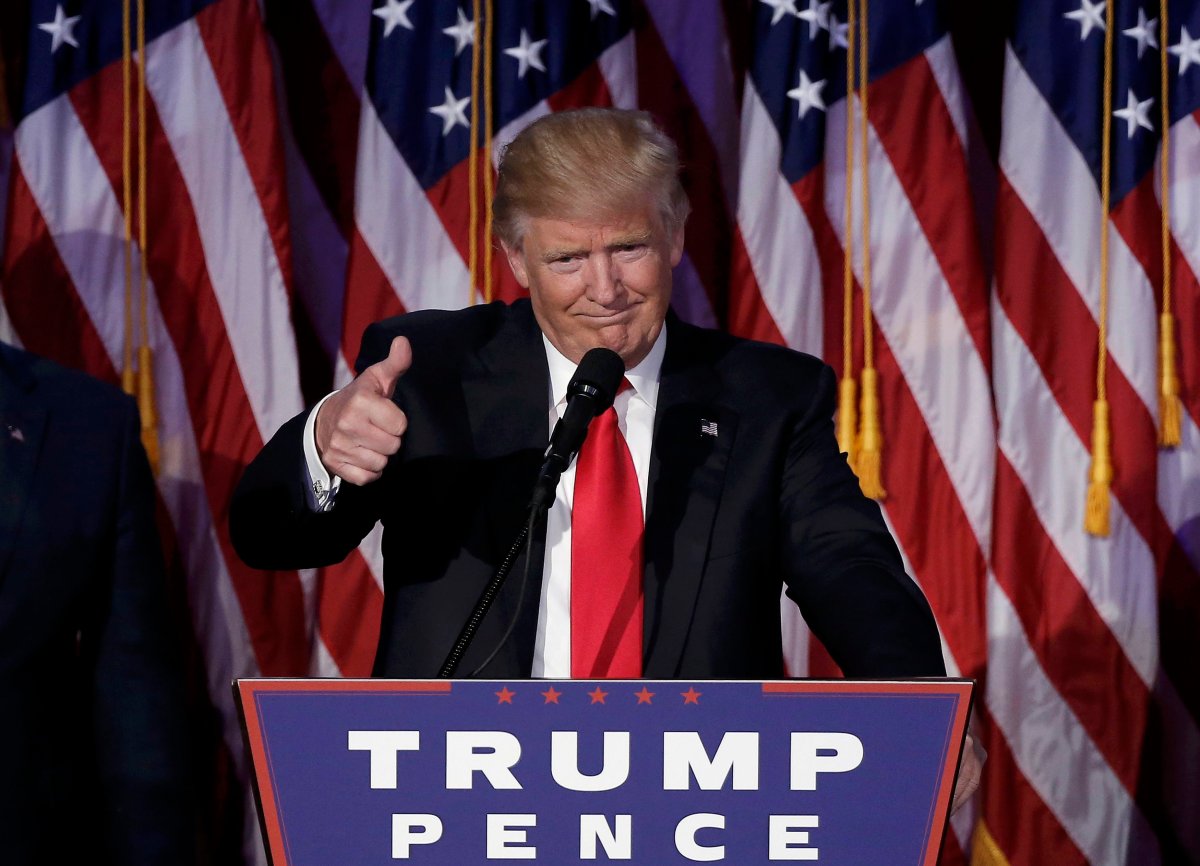It’s impossible to pinpoint the exact reason Donald Trump defied expectations to win the U.S. presidential election, yet many seem eager to place blame in the aftermath of a historic campaign.

Could his win be attributed to Hillary Clinton’s alleged lack of popularity among voters or the FBI’s last-minute investigation into additional emails linked to her private server? Did his repeated promises of change rally enough support from those tired of an eight-year Democratic administration?
READ MORE: Donald Trump arrives at White House to meet with Barack Obama as transition of power begins
Or was Facebook to blame?
Over the last 24 hours, several media outlets have published opinion pieces accusing the social network of aiding Trump’s campaign, including Forbes, New York Magazine and Mashable.
At the helm of their argument is Facebook’s news feed – the backbone on which the social network operates, or, as Mashable described it “a tangled mess of bizarre falsehoods and outdated information used as ammo to help people scream at one another.”
WATCH: Donald Trump’s rocky relationship with the media

No good news feed
Here is something Facebook users should already know – your news feed is curated by an algorithm to show you status updates, comments, news stories and advertisements it thinks you will like based on what content you have previously interacted with.
That means you’re shown content you are likely to agree with, both politically and otherwise, before you see a differing opinion.
“Spoon-feeding us information that reinforces our existing opinions, damages our ability as humans to think rationally, and to consider an opposing point of view,” read a Forbes’ article.
Facebook has long refused to call itself a “media company,” insisting that it’s a tech company that simply aggregates content.
READ MORE: Facebook is trying to make your News Feed more relevant
But Forbes, New York Magazine and Mashable’s articles all argue that Facebook’s stance is dangerous because it isn’t held to editorial standards that force it to present opposing ideas and comments with equal weight.
“Endless reports of corruption, venality, misogyny, and incompetence merely settle in a Facebook feed next to a hundred other articles from pro-Trump sources (if they settle into a Trump supporter’s feed at all),” read the New York Magazine article.
Facebook came under fire early in the election campaign, after media reports alleged Facebook contractors had purposely blocked conservative media outlets from appearing in the “Trending” sidebar.
READ MORE: Facebook denies censoring conservative content
The social networking company denied the allegations, noting that there are “rigorous guidelines in place for the review team to ensure consistency and neutrality,” adding that the guidelines don’t permit political perspectives to be suppressed or one viewpoint or outlet to be prioritized over another.
The “Trending” sidebar – which previously included a description of why the topic was trending – was later redesigned to only show the person, place, or thing that was trending.
Fake ‘news’ stories going viral
But Facebook is also coming under fire for allowing fake news websites and blogs that masquerade as legitimate sources to be featured next to articles from legitimate news sources.
“The most obvious way in which Facebook enabled a Trump victory has been its inability (or refusal) to address the problem of hoax or fake news,” said New York Magazine.
READ MORE: Donald Trump election win causes political, economic uncertainty around the globe
“All throughout the election, these fake stories, sometimes papered over with flimsy ‘parody site’ disclosures somewhere in small type, circulated throughout Facebook: The Pope endorses Trump. Hillary Clinton bought $137 million in illegal arms. The Clintons bought a $200 million house in the Maldives. Many got hundreds of thousands, if not millions, of shares, likes, and comments.”
A Buzzfeed investigation, published just days before the election, found that a group of Macedonian teens was responsible for dozens of these articles, many of which were written in favour of Trump.
Whether these articles were created to influence voters, or simply to make a profit from their ad-ridden websites, is unclear. However, these media outlets feel Facebook should be held accountable to better identify or remove fake news stories and websites.
Facebook has been working to rid its platform of so-called “click bait” using an algorithm that identifies phrases commonly used in these stories, including things like “… you won’t believe what happens next.”
It will also consider items “clickbait” if a headline exaggerates information or is misleading.
Is it fair to blame Facebook?
Robert Steiner, director of the fellowship in global journalism at the University of Toronto’s Munk School of Global Affairs, said that while Facebook should better address the issue of fake news stories, he noted that Facebook shouldn’t be seen as the enemy.
“Facebook is a genie and the genie is out of the bottle, so we have to find ways to work with that,” Steiner told Global News, noting that Facebook serves as a massive distribution platform for all journalism outlets – not to mention, one that makes them money.
READ MORE: What President Donald Trump will mean for Canada
“I think Facebook has shown an interest and willingness to work with journalists – we have to engage with it, not demonize it.”
Steiner said the 2016 presidential election, in many ways, was an experiment for how social media works, thanks to Trump and Clinton having a global audience at their fingertips.
While he neither agrees nor disagrees with the media coverage surrounding Facebook, he noted that the platform will continue to play a massive role in people’s lives and how media companies share their content. In other words, we have to learn to get along.
READ MORE: Who voted for Donald Trump?
“People of America knew who they were voting for [Trump], but they did it anyway. The same way that people know cigarettes are bad for them, but they smoke anyway,” he said.





















Comments